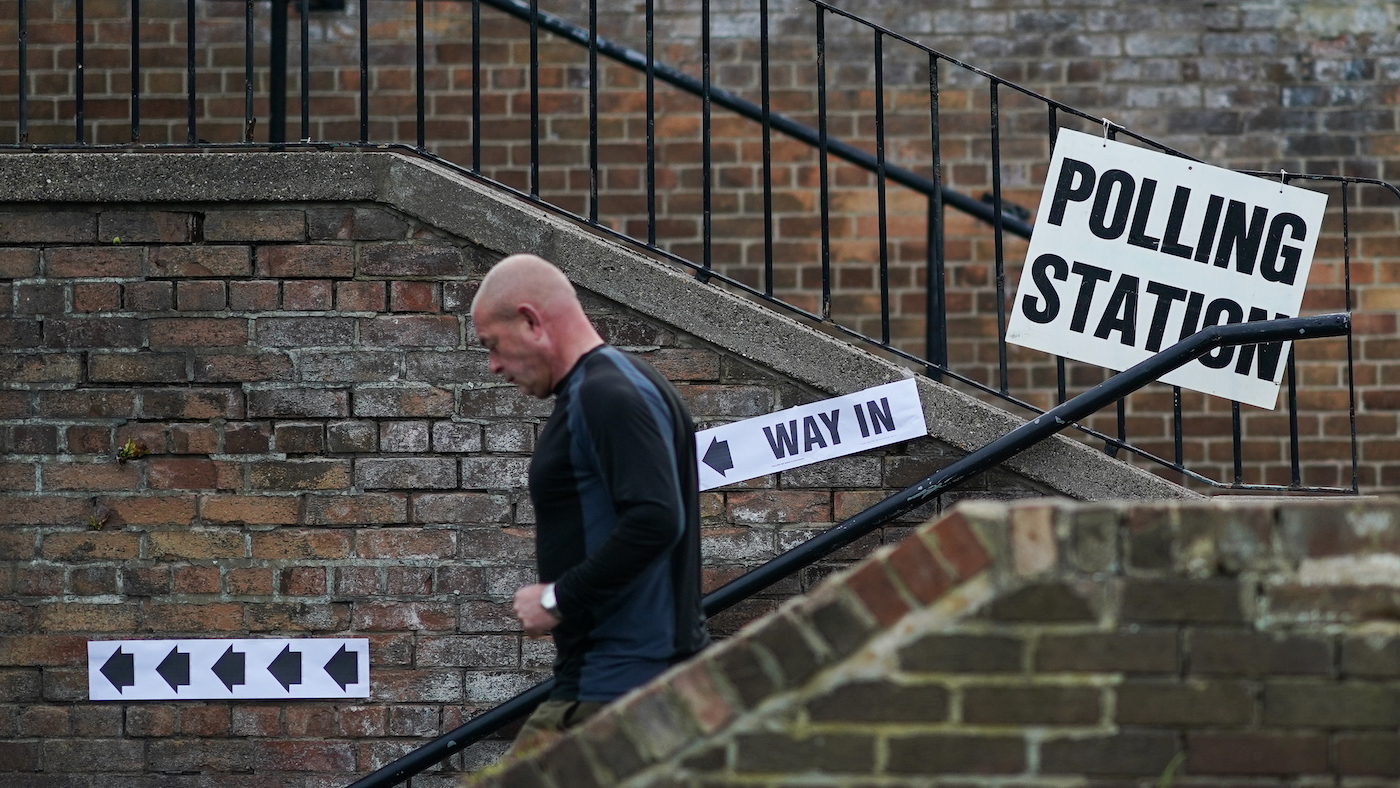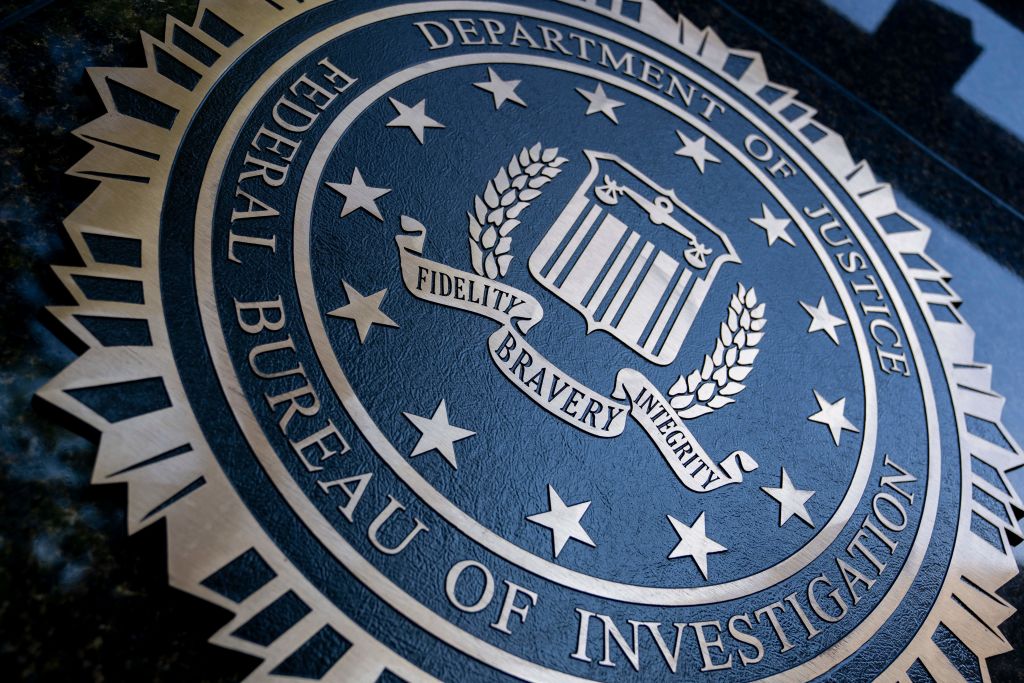Revenge porn: what is the law in the UK?
Government orders review that could see victims given automatic anonymity

A free daily email with the biggest news stories of the day – and the best features from TheWeek.com
You are now subscribed
Your newsletter sign-up was successful
Victims of so-called revenge porn could be granted the same anonymity in court as those who suffer other sexual offences, as part of a review of online abuse laws.
The ministries of justice and culture have asked the Law Commission to investigate whether legislation surrounding the non-consensual sharing of intimate images protects those targeted and has kept pace with technological change, The Guardian reports. The move comes “just four years after sharing explicit photos of ex-partners was made a specific crime by the Tory government”, adds the Daily Mirror.
Culture Secretary Jeremy Wright said: “We’ve already set out world-leading plans to put a new duty of care on online platforms towards their users, overseen by an independent regulator with teeth.
The Week
Escape your echo chamber. Get the facts behind the news, plus analysis from multiple perspectives.

Sign up for The Week's Free Newsletters
From our morning news briefing to a weekly Good News Newsletter, get the best of The Week delivered directly to your inbox.
From our morning news briefing to a weekly Good News Newsletter, get the best of The Week delivered directly to your inbox.
“This review will ensure that the current law is fit for purpose as we deliver our commitment to make the UK the safest place to be online.”
What are the current laws on revenge porn and similar abuses?
England and Wales introduced a law in 2015 that makes it an offence to send intimate images without consent, both online and in the form of printed pictures, with a maximum sentence of two years in prison. Scotland and Northern Ireland later passing similar legislation.
The laws were introduced despite some opposition on the grounds that the offences could be covered by existing laws about blackmail and obscenity.
A free daily email with the biggest news stories of the day – and the best features from TheWeek.com
Earlier this year, specific legislation was also introduced to outlaw “upskirting” - taking sexually intrusive photographs up someone’s skirt or dress without their permission. This crime carries a maximum two-year jail sentence as well.
What is not covered by existing leglslation?
UK law currently makes no specific provision for “cyberflashing” - when people are sent unsolicited sexual images of the perpetrator - although it could be prosecuted under other laws.
It also fails to cover “deepfake” pornography, where an individual’s face is superimposed onto pornographic photos or video footage.
And campaigners say that existing revenge porn laws are “not fit for purpose”, because they do not make it illegal to threaten to make intimate images public, the BBC reported in May. Activists are also calling for victims to receive anonymity.
Why don’t victims already have guaranteed anonymity?
Although UK law makes the sending of intimate images without consent an offence, it is categorised as a “communications crime” - which means the identities of victims are not automatically concealed, as they are in cases of sexual abuse or rape.
Sophie Mortimer of the Revenge Porn Helpline told the BBC that many women are not coming forward as a result. Mortimer is also calling for better training for police officers, after research by the University of Suffolk found that 95% of police officers who took part in a survey in 2017 had not had any training on revenge porn legislation.
Maria Miller MP, chair of the Women and Equalities Select Committee, has welcomed the new review, which is due to report back in 2021. “We need a specific image-based sexual abuse law to get rid of the fragmented approach to dealing with these offences which is currently in place,” Miller said.
-
 James Van Der Beek obituary: fresh-faced Dawson’s Creek star
James Van Der Beek obituary: fresh-faced Dawson’s Creek starIn The Spotlight Van Der Beek fronted one of the most successful teen dramas of the 90s – but his Dawson fame proved a double-edged sword
-
 Is Andrew’s arrest the end for the monarchy?
Is Andrew’s arrest the end for the monarchy?Today's Big Question The King has distanced the Royal Family from his disgraced brother but a ‘fit of revolutionary disgust’ could still wipe them out
-
 Quiz of The Week: 14 – 20 February
Quiz of The Week: 14 – 20 FebruaryQuiz Have you been paying attention to The Week’s news?
-
 Scattered Spider: who are the hackers linked to M&S and Co-op cyberattacks?
Scattered Spider: who are the hackers linked to M&S and Co-op cyberattacks?The Explainer 'Decentralised and adaptive', the group's mainly English-speaking members operate like an 'organised criminal network'
-
 North Korea may have just pulled off the world's biggest heist
North Korea may have just pulled off the world's biggest heistUnder the Radar Hermit kingdom increasingly targets vulnerable cryptocurrency, using cybercrime to boost battered economy and fund weapons programmes
-
 The new powers to stop stalking in the UK
The new powers to stop stalking in the UKThe Explainer Updated guidance could help protect more victims, but public is losing trust in police and battered criminal justice system
-
 Russia blamed for cyberattack that exposed UK voters’ data
Russia blamed for cyberattack that exposed UK voters’ dataSpeed Read Electoral Commission has not formally identified ‘hostile actors’ behind massive breach but experts say Russians ‘top suspect list’
-
 ‘Pig butchering’ and dodgy apps: four convincing scams to watch out for
‘Pig butchering’ and dodgy apps: four convincing scams to watch out forSpeed Read Consumer watchdog warns cybercriminals are becoming ‘more sophisticated’
-
 Dark web marketplace that sold bank-hacking bots seized by FBI
Dark web marketplace that sold bank-hacking bots seized by FBISpeed Read
-
 DOJ warns of spike in 'sextortion' cases targeting underage boys
DOJ warns of spike in 'sextortion' cases targeting underage boysSpeed Read
-
 How Scotland Yard took down iSpoof in UK’s biggest ever fraud investigation
How Scotland Yard took down iSpoof in UK’s biggest ever fraud investigationSpeed Read Thousands of victims robbed of £10,000 each on average by scammers posing as banks and trusted sources